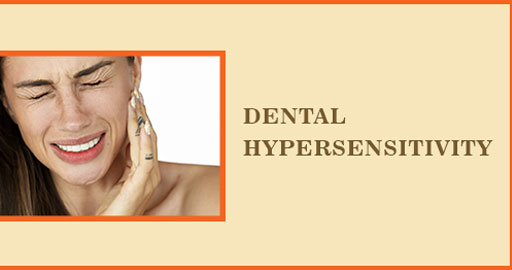
Dealing with Dental Hypersensitivity: Causes, Symptoms, and Treatments
Dental hypersensitivity, commonly known as sensitive teeth, is a common dental condition that affects millions of people around the world. It can cause discomfort and pain, making it difficult to enjoy hot or cold foods and beverages. In this blog, we will explore the symptoms, causes, and effective treatments for dental hypersensitivity to help you better understand and manage this condition.
Understanding Dental Hypersensitivity
Dental hypersensitivity is characterized by a sharp, sudden, and transient pain in response to various stimuli, such as hot or cold temperatures, sweet or acidic foods, or even brushing and flossing. This condition occurs when the underlying dentin of the tooth becomes exposed, either due to enamel erosion, gum recession, or other factors, allowing external stimuli to reach the nerve endings in the pulp of the tooth.
Symptoms of Dental Hypersensitivity
The most common symptom of dental hypersensitivity is a sharp and often intense pain, which can be triggered by:
- Cold or Hot Foods and Beverages: Sensitive teeth can make enjoying your favorite ice cream or hot coffee a painful experience.
- Sweet or Acidic Foods: Consuming sugary or acidic foods may lead to discomfort.
- Brushing and Flossing: Vigorous brushing or flossing can cause sudden bursts of pain.
- Cold Air: Breathing in cold air, especially in winter, may trigger discomfort.
Causes of Dental Hypersensitivity
Several factors can contribute to dental hypersensitivity, including:
- Enamel Erosion: The enamel, the outermost protective layer of the tooth, can wear away over time due to aggressive brushing, acidic foods, or dental conditions, exposing the dentin.
- Gum Recession: Receding gums can expose the tooth’s roots, which are not as well-protected as the crown, making them more susceptible to sensitivity.
- Tooth Decay: Cavities or tooth decay can create openings that allow sensitivity-triggering substances to reach the nerve endings.
- Teeth Grinding (Bruxism): Clenching or grinding your teeth can wear down enamel and lead to sensitivity.
- Dental Procedures: Some dental treatments, such as teeth whitening or crown placement, may temporarily cause sensitivity.
Effective Treatment Options
The good news is that dental hypersensitivity is manageable, and there are several treatment options available to alleviate the pain and discomfort:
- Desensitizing Toothpaste: Special toothpaste formulated for sensitive teeth can help block pain signals and strengthen enamel over time.
- Fluoride Treatments: Professional fluoride applications can strengthen tooth enamel and reduce sensitivity.
- Dental Sealants: Dentists can apply dental sealants to cover exposed dentin, providing a protective barrier.
- Bonding or Fillings: In cases where tooth decay is the cause, dental fillings or bonding can restore the tooth’s structure and alleviate sensitivity with cosmetic dentistry.
- Gum Grafting: If gum recession is the issue, a gum grafting procedure can be performed to cover exposed roots and reduce sensitivity.
- Lifestyle Changes: Avoiding acidic and sugary foods, using a soft-bristle toothbrush, and adopting a gentler brushing technique can help prevent further enamel erosion.
- Mouthguards: Wearing a mouthguard at night can help prevent tooth grinding, reducing enamel wear.
Conclusion
Dental hypersensitivity can be a source of discomfort, but with the right care and treatment and cosmetic dentistry, it is manageable. If you experience symptoms of dental hypersensitivity, it’s essential to consult with a dentist who can diagnose the underlying cause and recommend an appropriate treatment plan.
With the right approach, you can enjoy your favorite foods and drinks without the worry of dental discomfort. Remember, maintaining good oral hygiene practices and regular dental check-ups are key to preventing and managing dental hypersensitivity effectively.
By: Dr. Nayanika Batra
Leave a Reply
Leave a Reply
Explore More Similar Posts
Explore More Blogs


Leave a Reply